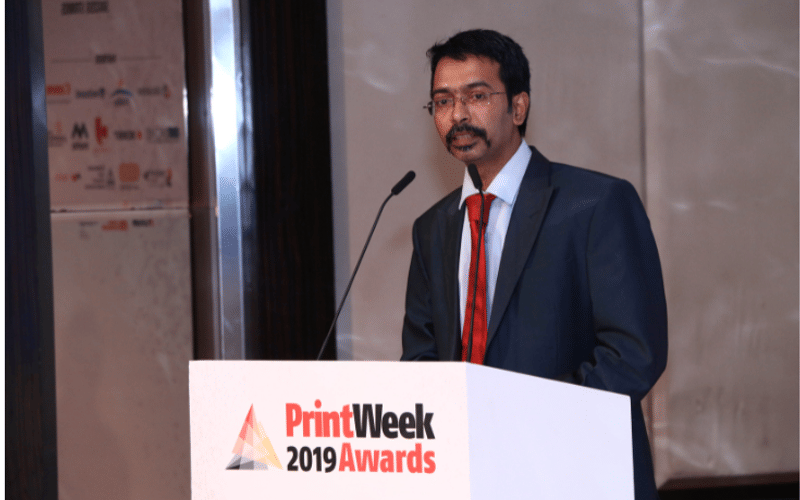Ganeshkumar advocates sustainable print practices
A research scholar pursuing a doctorate in sustainability, Ganeshkumar Vijayakumar sheds light on embracing sustainable solutions in the print industry
30 Nov 2023 | By Aditya Ghosalkar
Over the years, from just a catchphrase, sustainability has expanded to include waste reduction and effective management, recyclability, circular economy, downscaling, and water and energy conservation.
Ganeshkumar says, “The Indian print industry is increasingly recognising the importance of sustainable practices. Those, in the nascent stage, need to adopt these measures to reduce the climate impact.”
He believes processless plates, energy-efficient equipment and automation are the tools to leverage the green growth of the printing industry.
Processless plate benefits customers with its simplicity of operations. It reduces the burden of pre-press in terms of pre-heat, pre-wash, development, and rinsing operations; and cleanliness is ensured by eliminating the requirement for effluent disposal. This means reduced chemical usage and water consumption, thereby long-term cost savings.
Speaking on energy efficiency in presses, Ganeshkumar says, “For a print company to reduce its carbon footprint, it should utilise energy-saving equipment, also auxiliaries, on the printing press in addition to cost-effective lighting on the premises.”
Also, automation can streamline processes, eliminating waste and excess emissions. It decreases computing energy, saves paper by restricting excessive printing, and automates supply chain operations.
Ganeshkumar points out that the EU’s Carbon Border Adjustment Mechanism (CBAM) is a proposed policy to tackle climate change by levying carbon taxes on imported goods based on their carbon intensity. Its imposition will result in an increased financial and administrative burden on Indian goods. Thus, a sizable portion of India's exports to the EU will run the risk of becoming less competitive in the EU market due to these burdens.
“The implementation of CBAM could have implications for the future of Indian printers and converters. To minimise the impact, Indian companies will need to adapt their operations and comply with EU carbon emission standards,” he adds.
This presents an opportunity for India to adopt greener technologies and practices. Overall, the print industry can embrace sustainable print practices; reduce its environmental impact and improve efficiency.


